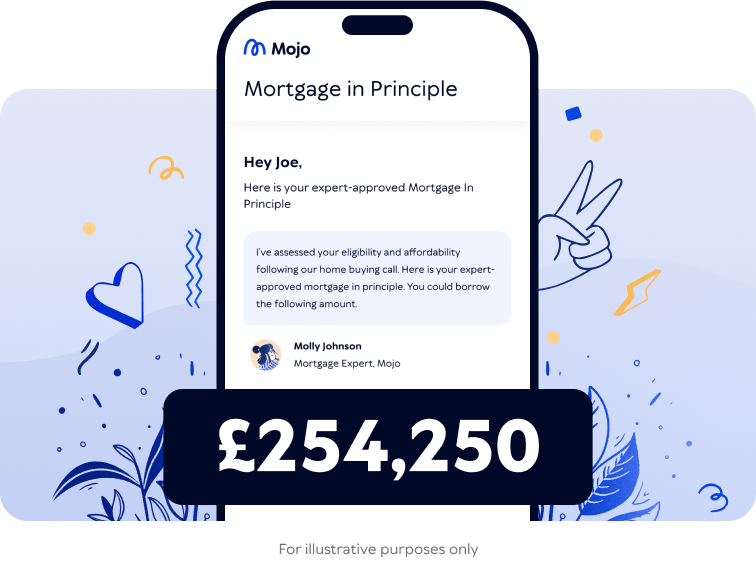Moving home mortgages
Thinking of moving home? Whether you’re upsizing, downsizing, relocating or simply fancy a change, our brokers are on-hand to help you compare home mover mortgage deals.

How does moving house work with a mortgage?
Moving house with a mortgage can seem daunting, but did you know you don’t have to change your mortgage to move home? It’s well worth comparing your options with the help of a mortgage broker to make sure you’re making an informed choice.
Porting your mortgage
Porting your mortgage allows you to transfer your current mortgage to your new home. This is usually the more straightforward option if you’re looking to move to a property of a similar value.
Advantages of porting your mortgage:
-
You may be able to keep your existing rate - which can be handy if you’re on a good deal and happy with the features of your current mortgage
-
If you’re still in a fixed-rate deal, you’ll avoid early repayment charges and other fees associated with taking out a new loan
-
Sticking with your current lender may take less time, as you’re already an existing customer
-
Your current lender may not charge you exit and early repayment charges when you port a mortgage with them (though you may still be charged if you want to reduce the size of your loan)
Disadvantages of porting your mortgage:
-
You may not get access to the most competitive deals, as you’re limiting your search to just one lender
-
Porting your mortgage might not be suitable if you’re looking for a more expensive property and need to borrow more. The additional loan may come with a different rate, and you may also be liable for additional fees
-
You’ll still need to undergo credit and affordability checks, in addition to getting your new home valued
-
Acceptance is not guaranteed - if your financial circumstances have changed since you first got your mortgage, your lender could refuse your application
-
Not all mortgages are ‘portable’ so you’ll need to double check your mortgage agreement or speak with a broker to find out your options
Take out a new home mover mortgage
A home mover mortgage involves paying off your current mortgage (which may involve early repayment charges) and taking out a new one. It’s pretty much the same process as remortgaging with a different lender.
Advantages of getting a new mortgage:
-
You’ll be able to choose from a wider variety of deals which may give you access to more competitive rates
-
You have the option to change lenders or terms, giving you greater flexibility
-
It may be easier to borrow more when remortgaging
Disadvantages of getting a new mortgage:
-
Taking out a new mortgage could incur additional charges such as early repayment charges on your old mortgage or arrangement fees on your new deal
-
You’ll need to undertake the full remortgaging process, which could take longer than porting a mortgage
-
If mortgage rates have risen since you first bought your current home, it could be more cost-effective to stick with your existing deal

“Timing is so important when deciding whether to switch lenders or port your mortgage. If you’re nearing the end of your fixed-rate deal, any early repayment charges may be significantly lower. This could make remortgaging more cost-effective - particularly if you can find a more competitive rate.
"On the flip side, if mortgage rates have risen since you originally got your mortgage, it could be a better option to port your mortgage. Consulting with a broker can help you to work out whether porting your mortgage or remortgaging would be the best fit for you.”
Luke Butcher, Chief Revenue Officer
5 steps to get a home mover mortgage with Mojo Mortgages
- 1.
Fill out our quick online form to tell us a bit about you and the kind of property you want to move to
- 2.
Chat about your mortgage options with one of our expert brokers
- 3.
Get a mortgage in principle to find out how much you might be able to borrow
- 4.
Find your dream home and make an offer
- 5.
Come back to us when you’re ready to submit a mortgage application. Our brokers will compare hundreds of mortgage deals across over 60 lenders to find the best option for you

“Having a broker on your side can be a big help for home movers. We’ll talk you through the different mortgage options available, comparing thousands of deals to recommend the right product for your circumstances. We’ll even prepare and submit your application and stay by your side right up until completion so you can focus on the big move.”
John Fraser-Tucker, Head of Mortgages
Can I borrow more when I move home?
Many home movers are looking to climb the property ladder, so it’s quite common to borrow more when moving home. In fact, home movers borrow 27% more than first-time buyers on average*.
Your main options are:
Port your mortgage but take out an additional loan (likely at a different rate) to cover the extra costs
Ask your current lender if you can borrow more on your existing mortgage
Remortgage to borrow more. Apply with a new lender for the amount you need to pay off your current mortgage and purchase your new home in one go.
If the sale value of your current property covers your purchase price, use your current home’s equity to pay for the new property outright
You may find it more challenging to upsize if your current property hasn’t risen in value or you haven’t built up much equity as you’ll need to prove to your lender that you can afford the increased mortgage amount. Speak to a qualified mortgage broker to discuss your eligibility and find out how much you might be able to borrow.
Can I borrow less when I move home?
Yes, it’s possible you will be able to borrow less and therefore reduce your mortgage payments when downsizing, particularly if your financial circumstances haven’t changed.
Some lenders may allow you to port your mortgage even if you’re looking to reduce the borrowing amount. However, you may need to pay an early repayment charge on the loan amount you no longer need.
Be mindful of how your loan-to-value (the percentage of a property’s value you need to borrow) could be affected. By buying a lower value home, your loan-to-value (LTV) could actually increase because your loan is a higher percentage of your property’s value. This could impact lender criteria and the interest rates you have access to. That said, if you’re able to use equity from the sale of a property to balance out or even lower your LTV, you may be able to access more competitive rates.

Find out how much you could borrow with a mortgage in principle
Get a mortgage in principle (MIP) from us before you start looking for properties, so you know how much you might be able to borrow for your big move!
It’s free to get an expert-verified MIP from Mojo Mortgages
Find out your maximum borrowing potential across a wide range of lenders
Check your eligibility and affordability
Soft credit check with no impact on your credit score
Home mover guides
Your guide to moving home
Our step-by-step guide to moving home will give you an idea of what to expect.
Buying and selling a house at the same time
We explain the different options available when buying and selling your house at the same time.
Stamp duty guide
There are lots of costs to be aware of when buying a home, including stamp duty. Learn more about how much stamp duty you may have to pay.
“Excellent service, helped us with a house move mortgage. Will reach out once the fixed rate ends!”
Sam Ghafar
09 March 2025
Moving home FAQs
If you change mortgages to a different lender, you may face penalties if you end your mortgage agreement earlier than agreed. You’ll usually be charged a percentage of the outstanding balance of your mortgage loan which decreases over time.
Yes, you’ll need a deposit when getting a mortgage for a new home. However, since you’ve owned a property before, you should be able to use the equity in your home as a deposit for your new property.
It’s straightforward to work out your equity - deduct how much you owe on your mortgage from the estimated property value. For example, if your property is worth £400,000 and you have £300,000 left to pay on your mortgage, you have £100,000 in equity to go towards your next home. You accumulate equity naturally over time as you make your mortgage repayments, and also as house prices rise.
Some home owners also choose to put down an additional cash deposit to top up their equity.
As a general rule, the larger the deposit, the lower the interest rate. That’s because a larger deposit lowers your loan-to-value ratio, which impacts the rates a lender will offer you.
If your financial situation has worsened since getting your original mortgage, you may find it more challenging to switch to a new lender.
It might be beneficial to consult with a mortgage broker who can help you weigh up your options. They’ll check your eligibility against lender requirements to recommend the mortgage provider who is most likely to accept your application. This can save you time and hassle manually researching lenders yourself, whilst also saving the stress of a potential failed application with a lender who might not be the right fit for you.
Being in negative equity can make it difficult to remortgage the property without covering the shortfall.
You’re in negative equity if the value of your property is lower than the amount you still owe on your mortgage. For example, if your home is worth £180,000, but your remaining mortgage is £200,000, you have £20,000 of negative equity.
Many homeowners in negative equity choose to wait until their property value rises or they’ve built up enough equity to move home. However, if you’re keen to move home sooner, speak to a mortgage broker to chat through your options.
If you think there’ll be a delay between selling your old property and buying a new one, make sure you know whether there’s a time limit on porting your mortgage. For example, some lenders will only allow you to port within 30 days.
If you can’t port the mortgage within the specified timeframe, you may need to find a new mortgage deal instead.
It’s not a legal requirement to have a mortgage in principle (MIP), but it certainly is useful. A MIP gives you a good idea of how much you’ll be able to borrow, helping you narrow down your property search. It can also come in handy when speaking with estate agents, particularly if you’re looking at more expensive properties, as it demonstrates you’re able to afford the homes you want to view.
Around four to eight weeks, depending on the complexity of your situation and whether you choose to port your mortgage or apply for a new deal. Though it’s worth keeping in mind that the whole moving process could take much longer than that.
If you’re porting a mortgage, the mortgage offer is usually valid for 90 days which should give you enough time to complete on your new property. If you opt for a home mover mortgage with a new lender, your mortgage offer is usually valid for a little longer - typically six months.
Our guide goes into more detail on how long a mortgage application takes.
As a home mover, you won’t qualify for first-time buyer Stamp Duty Land Tax (SDLT) relief.
You’ll therefore need to pay the usual residential SDLT:
0% on the first £125,000
2% on the portion from £125,001 to £250,000
5% on the portion from £250,001 to £925,000
10% on the portion from £925,001 to £1.5 million
12% on the portion above £1.5 million
Use our stamp duty calculator to get an idea of how much you'll need to pay when you move home.
Yes, you don’t need to have lived in your current property for a certain amount of time before you can look to move! If the time’s right to find a new property, you can start to look straightaway - just be mindful of those pesky early repayment charges.
*All data taken from Mojo Mortgages internal customer records, covering the period from 1 January 2025 to 31 August 2025